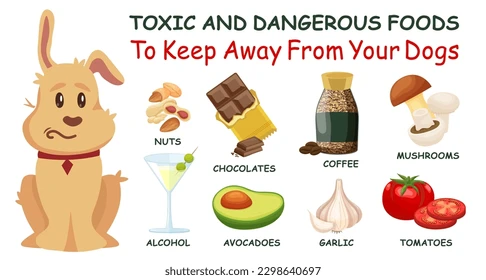Danger lurks in the pantry! As pet owners, we want to give our furry companions the best, but sometimes even the most well-intentioned treats can pose hidden risks. Embark on a culinary inquiry with us, uncovering the toxic ingredients that can send pets spiraling into discomfort or worse. Arm yourself with knowledge to protect your beloved friend from the perils of these culinary pitfalls!
Chocolate: the Deadly Delicacy
Chocolate, a sugary treat that can bring a smile to human faces, is a hidden danger lurking in our homes for our beloved pets.This seemingly innocuous indulgence packs a deadly punch, especially for dogs and cats. Theobromine, a compound found in chocolate, can cause elevations in heart rate, seizures, and even death at higher doses. The bitter, dark varieties of chocolate pose the most important threat, as thay contain higher concentrations of theobromine than their milk chocolate counterparts. If you suspect your pet has ingested any amount of chocolate,it’s crucial to seek veterinary attention immediately. Time is of the essence,and the sooner medical intervention is provided,the better the chances of a positive outcome. Prevention, as always, is key, so keep chocolate and other toxic foods out of reach to safeguard the health and well-being of your furry family members.
Grapes and Raisins: the Hidden Threat
Beware, pet owners! These seemingly innocuous treats can be deadly to your furry companions. Grapes and raisins,in any form—fresh,dried,or even juice—contain an unknown toxin that can cause
in both dogs and cats.
The exact amount that is toxic varies depending on the individual animal’s size and sensitivity. Though,even a single grape or raisin can be enough to trigger this life-threatening condition.
| Symptom | % of Cases |
| — | — |
| Vomiting | 77% |
| Lethargy | 59% |
| Diarrhea | 44% |
| Appetite Loss | 33% |
| Increased Thirst | 33% |
| Seizures | 11% |
If your pet has ingested grapes or raisins, immediate medical attention is crucial. Treatment typically involves induced vomiting, activated charcoal to absorb the toxin, and intravenous fluids to support kidney function.
Macadamia Nuts: A Nutty Nightmare
| Why? | Effects |
|---|---|
| Macadamia nuts contain an unknown toxin that is harmful to dogs. | Pancreatitis, vomiting, tremors, diarrhoea, weakness |
Insights and Conclusions
With knowledge as your compass, you can steer clear of these culinary pitfalls and keep your furry friends thriving. Remember, a mindful approach to pet nutrition is not just about avoiding toxins; it’s about embracing a world of wholesome, delectable choices that will keep your companions happy and wagging for years to come.



